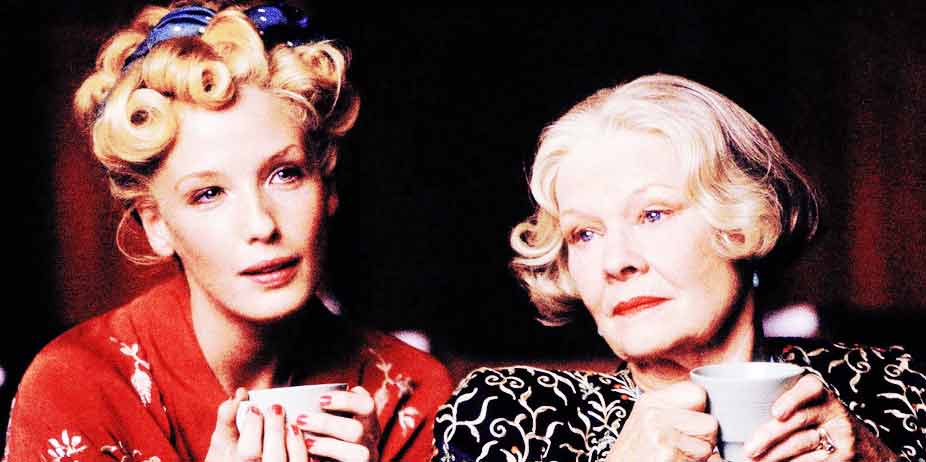
Mrs. Henderson Presents (2005)
Inspired by a true story, Miss Henderson Presents is the unusual tale of an older woman in London who decided to provide a unique form of entertainment for the male masses just prior and during the second world war.
Mr. Henderson has died and now his wife (Judi Dench) is simply bored out of her mind. She attempts sewing and only succeeds in stabbing her thumb with a needle. She cannot abide committee meetings and laughs at the notion that at seventy, she could attract the romantic attentions of another man. Money is no option to her and so on a whim one afternoon she purchases an old run down theater with the intention of turning it into a business. Her friends think it is an absurd idea but encourage her to hire a general manager. Vivian Van Damm (Bob Hoskins) and Mrs. Henderson immediately get off on the wrong foot. She is twenty minutes late to the appointment, he is rude, and she snottily makes a reference to his Jewish heritage. In short, he's the ideal man for the job and as the two of them constantly butt heads and bicker, they launch a successful theater that is doing something no one else has ever heard of -- run continual shows, five or six performances a day!
Everyone is pleased and money is rolling in... and then every other show in town has started doing it. Their revenues dwindle until Mrs. Henderson has a creative and daring idea -- what if some of the girls on stage aren't wearing any clothes at all? It's unheard of outside French brothels but she attempts to make her dream a living reality in the stuffiness of British society.
Obviously, this movie is going to have character flaws and an abundance amount of nudity, but underneath the "peep show" it has surprisingly multi-dimensional people and genuinely sweet moments. The relationship of Mrs. Henderson and her "Jewish manager" is superb and is the film's high point, from their temperamental bouts of annoyance (at one point, they are interrupted, both forget what they were about to say, and happily return to work) to the more genuine emotional connection between them. Two wonderful scenes are when Mrs. Henderson learns Dutch Jews are being arrested and goes to sit with Van Damm in empathy, and toward the end when they are dancing on the roof together in spite of the danger of air raids (it's only a few seconds before the accusations start -- "You stepped on my foot!" "I did not!"). There's also a melancholy story revolving around one of the girls (Reilly) who works in the show and her relationship with a young airman. Much of the movie revolves around the controversy of their program but an equal amount of it talks about the consequences and losses of war and the sadness therein for the women who lose husbands and children in battle.
I was fortunate not to see the nude content thanks to my machine, but it is extreme -- artistically presented in all but one case, but still graphic. There are multiple scenes of full female nudity and bare breasts, and an instance in which several men are shown fully naked from the front. Dialogue revolves around body parts. There are a scattered amount of profanities, some sexual references, and one f-word. We learn a young woman is pregnant by a man she has only known a few days. One of the leading male performers hints that he prefers other men rather than women. Mrs. Henderson justifies her show by stating that she doesn't believe any young man should go to his death without having seen a real woman naked, since she found a French postcard of a nude woman among her sons things after he died and feared he never saw the real thing.
I have mixed feelings about the film because on one hand it has marvelous characters and forms a real connection to the audience but I also do not approve of Mrs. Henderson's intentions or behavior. In order to get around the lingering morality of the era she convinced higher officials that it was no more inappropriate than paintings in a museum -- it's all right so long as the girls never move. Then of course she sets up one situation that will force the girls to abandon their places. It's about as distasteful as modern-day strip clubs and while the film attempts to imply that it was a good thing she did, and brought many people together, I cannot help but think that sort of entertainment is harmful -- as harmful, perhaps, as bringing this film unedited into your home.
